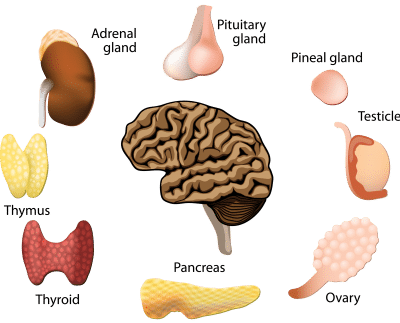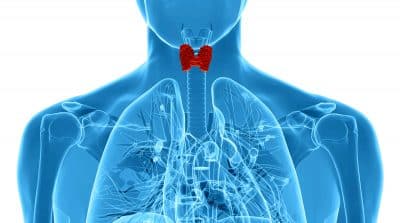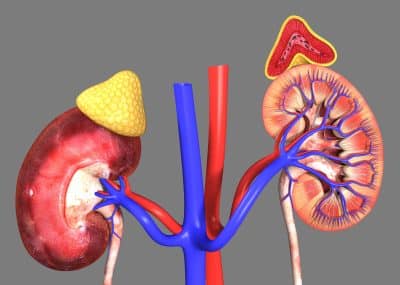All About Hormones: How they Function to Keep You Healthy

If your circulatory system is a superhighway, your hormones are some of the most important traffic traveling those critical thoroughfares.
Likening hormones to cars shows these complex molecules as simply vehicles. And that’s exactly what they are. Hormones are constantly driving through your internal highways to transport messages and signals between your body systems and organs.
For example, when you’ve eaten a meal, the hormone insulin enters the highway from the pancreas. Then it races through the bloodstream to collect glucose and deliver it to your cells for energy.
Let’s broaden this driving metaphor. If hormones are various vehicles, then the glands that produce them are like car manufacturers. These manufacturers are all a part of the larger controlling body—your endocrine system.
The endocrine system employs vehicle (or hormone) manufacturers throughout the body: the pancreas, thyroid, adrenal, ovaries, and testes to name a few. Let’s take a closer look at the major hormones associated with each of these important glands. Within each section, you’ll also pick up tips for maintaining healthy hormone activity.
The Pancreas: Insulin
The pancreas is responsible for secreting insulin, the hormone that regulates blood glucose, or sugar. Insulin speeds the uptake of blood sugar by the body’s cells. So after a meal, as your blood sugar levels rise, so do your insulin levels. The insulin acts as a messenger, shuttling these units of energy from the blood to the cells for use.
Health issues can arise from insufficient insulin levels or insulin resistance. If levels are low, or the body’s cells are ineffective at interacting with insulin, blood sugar levels will rise. Elevated levels of blood sugar is called hyperglycemia. If these conditions exist for extended periods of time, symptoms of prediabetes may arise, and type 2 diabetes can eventually develop.
To keep your blood sugar levels in check and maintain your cells’ sensitivity to insulin, incorporate the following into your lifestyle:
- Know your blood sugar levels. Visit your physician and ask to have your HbA1c, or hemoglobin A1c levels checked. This measure provides a historical view of your blood sugar levels.
- Diversify your diet. Modern diets can fill up with empty calories, sugar, and fat. Switch up your diet by incorporating more complex carbohydrates, protein, and healthy fats. This type of energy will provide a slower rise in blood sugar, providing more stable, sustainable energy. Simple sugars provide a quick spike in energy, followed by an inevitable crash. Where possible, weed out simple sugars from your diet.
- Get regular exercise. The American Heart Association suggests 150 minutes of moderate activity and two strength-training workouts per week. Even modest weight loss can stabilize blood-sugar levels.
- If you smoke, quit. Smoking is a risk factor for insulin resistance, and diabetes.
- Sleep more. Fewer hours of sleep is also a risk factor for insulin resistance and diabetes.
- Sleep better by creating an environment that promotes restful sleep. You can accomplish this in a number of ways. Remove tech devices like phones, TVs, and iPads from your bedroom. Dim your bedroom lights an hour before bedtime to help you wind down. Play light, instrumental music to help your mind relax. If you share your living space with others, a white noise or sound machine can help cover up noise from elsewhere in the house. This is especially important if you can’t sleep more. This way, the hours you do get will be more restful.
The Thyroid: Triiodothyronine (T3) and Thyroxine (T4)

The thyroid is a gland situated near the base of the neck that is responsible for making and releasing thyroid hormones into the blood. The most prominent of which are Triiodothyronine (T3) and Thyroxine (T4). These hormones play an important role in your metabolism, normal heart and digestive function, mood and bone maintenance, and a baby’s brain and nervous system development during pregnancy.
In fact, T3 and T4 work to regulate metabolism and heart rate. Regulated levels of these hormones are important for good health. For example, if T3 and T4 levels are too low, digestion may be impeded and constipation could be an issue. Additionally, low levels could cause a slow heart rate, resulting in circulation issues.
On the other hand, if levels of T3 and T4 climb too high, the opposite conditions may present health issues. Overly active metabolism could result in unhealthy weight loss. Increase in heart rate could cause issues with body temperature regulation, anxiety, and more.
Iodine can support the normal production of T3 and T4 by the thyroid. To avoid deficiency and associated thyroid complications, consider the following:
- Check whether or not the salt you used is in iodized form. If not, replace it with iodized salt. This is an easy way to ensure you will regularly ingest small amounts of iodine.
- If you have or suspect thyroid issues, consult with your physician for appropriate testing, and, if needed, a nutritionist can formulate the best diet plan for you.
The Adrenal Glands: Adrenaline & Cortisol

The adrenal glands sit atop the kidneys and play important regulatory roles in several body functions, including stress response, immunity, and metabolism. These functions are regulated by the release of adrenaline and cortisol—among others—from the adrenal glands.
During the stress response, also known as the fight or flight response, both adrenaline and cortisol play important roles. In simplest terms, when you feel threatened, your nervous system kicks into high gear to help you deal with the threat.
Adrenaline is the hormone that helps you prepare to either fight the threat, or flee from it. As adrenaline rushes into your systems, your heart rate speeds up. This ensures your brain and muscles are primed for dealing with the threat. Additionally, more adrenaline increases the level of sugar in your blood. This provides your body with enough energy to use quickly while either fighting or fleeing from the stressor.
During the stressful moment, cortisol helps the body convert stored energy into readily usable energy in the form of sugar (glucose). So while its initial presence is helpful, it has an expiration date. If cortisol levels remain high, it can lead to undesirable outcomes, like overeating, weight gain, and anxiety.
The way you respond to stress is partly determined by genetics. And since you can’t change your biology or plan for all of life’s everyday stressors, you should consider the things you can control:
- Switch from coping to management strategies. This often means planning your time, prioritizing tasks, and anticipating events that may be more stressful than others.
- Incorporate breathing exercises throughout your day. Make this a habit in stress-free moments, and it will be readily available for you during stressful times. Breathing deeply and exhaling fully can help slow your heart rate and bring you into the present moment.
- Foster and lean on a support network. Healthy relationships can support your mental and emotional well-being when life gets tough.
The Ovaries & Testes: Estrogen & Testosterone
The ovaries are the primary female reproductive organ. They are responsible for secreting the hormones estrogen and progesterone. Both play a role in menstruation and a healthy reproductive system overall.
Estrogen represents an entire class of hormones, including estradiol (E2), the primary female sex hormone. Fluctuations in estrogen levels are what guide menstruation. Estrogen levels suddenly peak during the menstruation cycle, causing the ovaries to release an egg. Once this occurs, estrogen levels drop again.
The testes are the male equivalent to ovaries. They are a sex organ in the male reproductive system responsible for the secretion of testosterone. This hormone is known as an androgen. It’s responsible for the development of male physical sex characteristics. The influence of testosterone is most recognizably exhibited during puberty: lower voice, increased body hair, general growth, and muscle development.
Testosterone also plays a vital role in healthy sperm production. Maintaining healthy, well-regulated levels of testosterone promises fertility.
Levels of sex hormones fluctuate over the lifecycle. As you age, the secretion of these hormones will undoubtedly decline. Supplementation with synthetic hormones is a regular course of action for individuals with certain medical conditions. This decision is made under the close guidance of a healthcare professional.
While some research has shown some foods may promote or suppress these hormone levels, other research has proven the opposite. In the absence of hard, widely accepted evidence, follow the guidelines for a healthy, balanced diet, regular exercise, and high-quality nutritional supplement regimen. This well-rounded approach will provide you with the overall nutrition you need for good health—and support for healthy hormone activity. Keeping these messenger vehicles running smoothly is key to living your best life.
About the Author
Jenna Templeton is a health educator and freelance science writer living in Salt Lake City, Utah. After receiving a bachelor of science degree in chemistry from Virginia Tech, Jenna spent five years as a research scientist in the nutritional industry. This work fueled her interest in personal wellness, leading her to pursue a graduate degree in Health Promotion & Education from the University of Utah. Outside of work, Jenna enjoys live music, gardening, all things food, and playing in the Wasatch mountains.
References
https://www.hormone.org/hormones-and-health/hormones/hormones-and-what-do-they-do
https://www.medicalnewstoday.com/info/diabetes/whatisinsulin.php
https://www.medicalnewstoday.com/articles/305567.php
https://www.webmd.com/women/tc/thyroid-hormones-topic-overview
https://www.endocrineweb.com/endocrinology/overview-adrenal-glands
https://www.hopkinsmedicine.org/healthlibrary/conditions/endocrinology/adrenal_glands_85,p00399
https://www.mayoclinic.org/healthy-lifestyle/stress-management/in-depth/stress/art-20046037
https://www.webmd.com/women/guide/normal-testosterone-and-estrogen-levels-in-women#1-3












